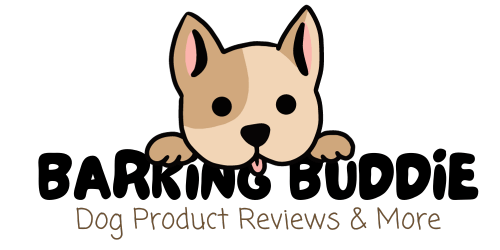If you’re a proud dog owner or thinking of becoming one, it’s crucial to be aware of the potential health issues that can arise in our furry friends. By understanding these issues and taking proactive measures, you can ensure your dog’s well-being and give them the happy and healthy life they deserve. In this article, we will explore some common health concerns in dogs and provide practical tips on how to prevent them. So, let’s dive in and discover how you can keep your canine companion in top shape!

Common Health Issues in Dogs
1.1 Obesity
Obesity is a common health issue in dogs and can lead to a range of other problems such as diabetes, heart disease, and joint pain. It is important to ensure that your furry friend maintains a healthy weight to avoid these complications. Providing a balanced diet and regular exercise are the key factors in preventing obesity in dogs. Be mindful of portion sizes, avoid excessive treats, and engage in daily physical activities to keep your dog fit and healthy.
1.2 Dental Problems
Dental problems, including plaque buildup, gum disease, and tooth decay, can be quite common in dogs. These issues can cause pain, discomfort, and even lead to systemic infections if left untreated. Regular dental care is essential in preventing such problems. Brushing your dog’s teeth regularly, providing dental chews or toys, and scheduling professional dental cleanings are all important steps in maintaining good oral hygiene for your furry companion.
1.3 Ear Infections
Ear infections can be quite uncomfortable for dogs and may cause symptoms like itching, redness, discharge, and odor. These infections can occur due to a variety of reasons, including allergies, moisture buildup, or foreign objects in the ear canal. To prevent ear infections, it is crucial to regularly clean and inspect your dog’s ears. Use appropriate ear cleaning solutions recommended by your veterinarian and avoid excessive moisture in the ears, especially after bathing or swimming.
1.4 Skin Allergies
Skin allergies are a common health issue in dogs and can manifest as itching, redness, rashes, hair loss, and hotspots. Allergies can be caused by several factors, including food allergies, environmental allergens, and flea bites. To prevent and manage skin allergies, it is important to identify and avoid allergens that trigger your dog’s symptoms. Regular bathing with hypoallergenic shampoos, using appropriate flea control measures, and working closely with your veterinarian to develop a suitable treatment plan can help alleviate your dog’s discomfort and prevent further skin issues.
1.5 Arthritis and Joint Problems
Arthritis and joint problems are frequently seen in older dogs, but they can also affect younger ones, especially larger breeds. These conditions can cause pain, stiffness, and difficulty in mobility for your furry friend. To prevent the progression and intensity of arthritis and joint problems, it is important to maintain your dog’s joint health. Providing a balanced diet, regular exercise, and supplements such as glucosamine and omega-3 fatty acids can help keep your dog’s joints healthy and promote better mobility.
Preventing Health Issues in Dogs
2.1 Balanced Diet and Weight Management
A balanced diet is essential for your dog’s overall health and plays a crucial role in preventing various health issues. Ensure that your furry friend is fed a diet that is appropriate for their age, size, and breed. Avoid overfeeding and limit treats to prevent obesity. It is always a good idea to consult with your veterinarian to determine the ideal diet plan for your dog’s specific needs.
2.2 Regular Dental Care
As mentioned earlier, regular dental care is vital in preventing dental problems like plaque buildup and gum disease. Incorporate brushing your dog’s teeth into their daily routine, ideally using a toothbrush and toothpaste specifically designed for dogs. Additionally, provide dental chews or toys that help reduce plaque and tartar buildup. Consider scheduling professional dental cleanings as recommended by your veterinarian to ensure optimal oral health.
2.3 Ear Cleaning and Inspection
Maintaining clean ears can help prevent ear infections in dogs. Gently clean your dog’s ears using a vet-recommended ear cleaning solution and cotton pads or balls. Avoid using cotton swabs, as they can potentially damage the ear canal. Regularly inspecting your dog’s ears for any signs of infection or foreign objects is crucial in catching and addressing any issues early on.
2.4 Allergen Management
If your dog has known allergies, it is important to manage and minimize exposure to allergens. Determine the specific triggers for your dog’s allergies with the help of your veterinarian and take proactive steps to avoid those allergens. This may involve changes in diet, using hypoallergenic bedding, reducing exposure to environmental allergens, or implementing flea control measures.
2.5 Maintaining Joint Health
To ensure optimal joint health and prevent arthritis or joint problems, provide your dog with regular exercise tailored to their abilities and needs. Incorporate activities that promote gentle joint movements, such as walking, swimming, or low-impact exercises. Additionally, consider adding joint supplements, as recommended by your veterinarian, to support your dog’s joint health and mobility.
Specific Health Issues and Prevention
3.1 Heartworm Disease
Heartworm disease is a serious and potentially fatal condition caused by parasitic worms called heartworms. The disease is transmitted through mosquito bites and can affect dogs of all ages. Prevention is key when it comes to heartworm disease. Speak to your veterinarian about preventative medications that are safe and effective for your dog. Administer these medications regularly, as advised, to protect your furry friend from this severe health issue.
3.2 Fleas and Ticks
Fleas and ticks are external parasites that can cause discomfort, skin irritation, and transmit diseases to your dog. Prevention of flea and tick infestations is crucial in maintaining your dog’s well-being. Use veterinarian-approved flea and tick preventive products, such as topical treatments or oral medications, regularly and as directed. Regularly inspect your dog for any signs of fleas or ticks, especially during warmer months or if they spend time in grassy or wooded areas.
3.3 Vaccinations
Vaccinations play a vital role in preventing several contagious and potentially life-threatening diseases in dogs. Consult with your veterinarian to determine the appropriate vaccination schedule for your dog. Ensure that your dog receives core vaccinations, such as rabies, distemper, parvovirus, and canine hepatitis, as well as any additional vaccines recommended based on their lifestyle and potential exposure risks.
3.4 Parasite Prevention
In addition to heartworms, there are other internal parasites, such as roundworms, hookworms, and tapeworms, that can affect dogs. Regular deworming, as recommended by your veterinarian, is crucial in preventing these parasites from causing serious health issues. Additionally, maintaining good hygiene practices, such as regular fecal checks and prompt disposal of feces, can help minimize the risk of parasite transmission.
3.5 Heatstroke
Heatstroke is a potentially life-threatening condition that can occur when a dog’s body temperature becomes too high, often due to exposure to high temperatures or prolonged physical exertion. To prevent heatstroke, avoid leaving your dog in hot cars or exposing them to extreme heat without access to shade and fresh water. Provide ample water and avoid excessive exercise during hot weather. If you notice any signs of heatstroke, such as excessive panting, drooling, or weakness, seek immediate veterinary attention.
Regular Veterinary Care and Check-ups
4.1 Importance of Veterinary Visits
Regular veterinary care is essential in maintaining your dog’s overall health and catching any potential health issues early on. Routine check-ups allow veterinarians to monitor your dog’s health, detect any developing problems, and provide appropriate preventive care.
4.2 Routine Examinations
During routine examinations, your veterinarian will thoroughly examine your dog, assessing their vital signs, weight, dental health, heart and lung function, and overall physical condition. These examinations help in identifying any abnormalities or potential health issues that may require further investigation or treatment.
4.3 Blood Tests and Screenings
Blood tests and screenings are important diagnostic tools that can help detect underlying health issues in dogs. These tests can include complete blood count, blood chemistry panel, heartworm testing, and other specific screenings as recommended by your veterinarian. Regular screenings provide valuable insights into your dog’s overall health and help identify any early signs of diseases or conditions that require attention.
4.4 Age-Appropriate Healthcare
As dogs age, their healthcare needs may change, and specific age-related conditions may arise. Providing age-appropriate healthcare entails regular check-ups, vaccinations, tailored diet and exercise plans, and potential adjustments to medications or supplements based on your dog’s changing needs. Regular communication with your veterinarian can ensure your dog receives the optimal care as they age.
4.5 Spaying/Neutering
Spaying (for female dogs) and neutering (for male dogs) have several health benefits and can help prevent certain reproductive-related health issues, such as uterine infections and testicular cancer. Spaying or neutering your dog also helps in controlling the pet population and can improve behavior, reduce roaming tendencies, and decrease the risk of certain types of aggression. Consult with your veterinarian to determine the appropriate timing for spaying or neutering your dog.
Environmental Considerations
5.1 Safe and Clean Living Space
Providing your dog with a safe and clean living environment is essential for their overall health and well-being. Regularly clean and sanitize their sleeping areas, remove any potential hazards or toxic substances, and ensure adequate ventilation and lighting. Keep electrical cords, cleaning supplies, and medications out of their reach to prevent accidents.
5.2 Regular Exercise and Mental Stimulation
Regular exercise is not only important for physical health but also for mental well-being. Engage your dog in regular exercise, tailored to their age, breed, and physical abilities. This can include walks, playtime, interactive toys, or engaging in dog sports or training activities. Mental stimulation through puzzle toys, obedience training, or scent work can also help keep your dog mentally sharp and prevent boredom-related behavior problems.
5.3 Avoiding Toxic Substances
Dogs are curious creatures and may be prone to ingesting harmful substances. It is essential to keep potential toxins out of their reach. This includes chemicals, certain houseplants, certain foods (such as chocolate, grapes, and onions), medications, and even some human-grade products. Familiarize yourself with common household toxins and be diligent in keeping them inaccessible to your furry friend.
5.4 Seasonal Precautions
Different seasons bring different challenges for your dog’s health. During cold weather, provide appropriate shelter, warm bedding, and limit exposure to freezing temperatures. In hot weather, avoid leaving your dog in cars or overexerting them in high temperatures. Take precautions against insect bites during the warmer months and be mindful of potential seasonal allergies. Adjust your care routines and activities accordingly to ensure your dog remains comfortable and safe throughout the year.
5.5 Grooming and Hygiene
Regular grooming is not only important for your dog’s appearance but also for their health. Brushing your dog’s coat helps remove loose hair, prevents matting, and promotes good skin health. Additionally, bathing your dog with appropriate shampoos helps maintain a clean and healthy coat. Trim your dog’s nails regularly to prevent discomfort or injury. Lastly, regularly check your dog’s ears, eyes, and mouth for any signs of infections or abnormalities and seek veterinary attention if needed.
By following these preventive measures and prioritizing your dog’s healthcare needs, you can significantly reduce the risk of potential health issues and ensure your furry friend enjoys a happy and healthy life by your side. Remember, your veterinarian is your best resource for guidance and recommendations specific to your dog’s individual needs.


